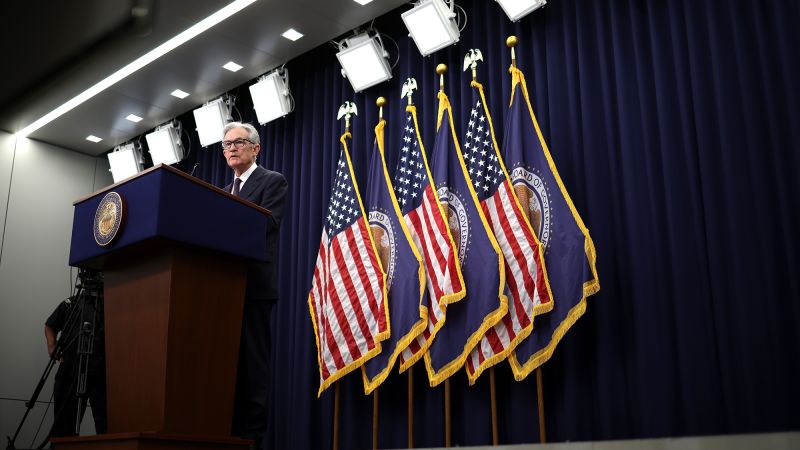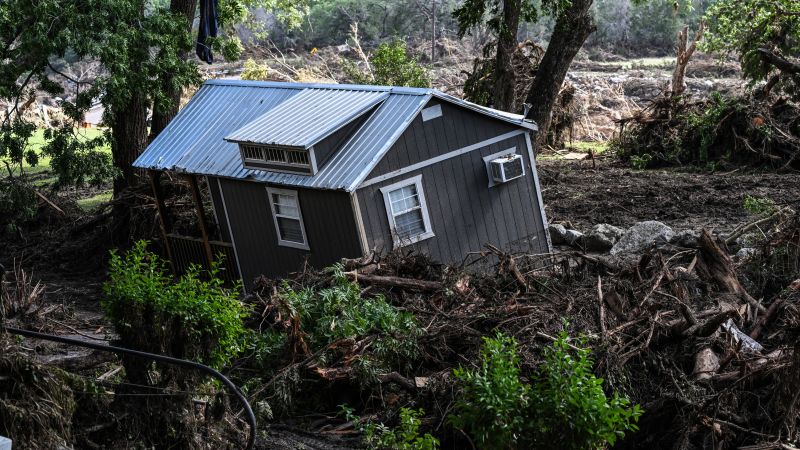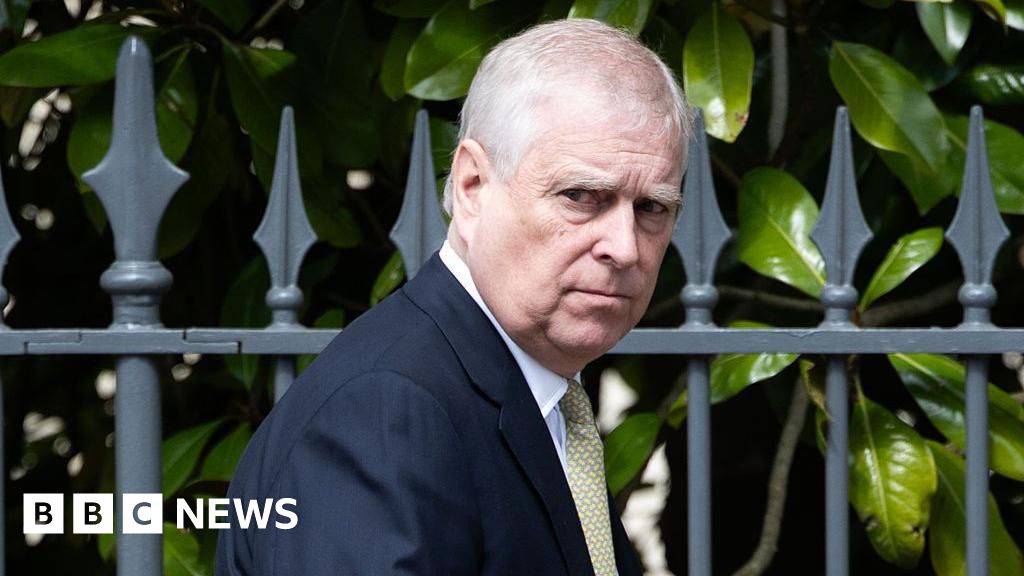US-China Trade War: Will Trump and Xi Meet to Resolve Tensions?

Introduction
US President Donald Trump and Chinese leader Xi Jinping have been embroiled in a trade war for over a year now, with no signs of a resolution in sight. However, there is a glimmer of hope as US Secretary of State Marco Rubio stated that there is a "high probability" that the two leaders will meet this year. This has raised expectations for a potential breakthrough in the ongoing trade tensions between the two countries.
Current Situation
The trade war has had a significant impact on both the US and Chinese economies, with tariffs being imposed on billions of dollars worth of goods. The tensions have also spilled over into other areas, such as technology and national security. Despite this, both sides have expressed a willingness to reach a deal and avoid further escalation. A meeting between Trump and Xi could be a crucial step in finding a resolution and restoring stability in the global economy.
Possible
About the People Mentioned
Donald Trump
Donald John Trump, born June 14, 1946, in Queens, New York, is an American businessman, media personality, and politician. He graduated from the University of Pennsylvania’s Wharton School in 1968 with a degree in economics. In 1971, he took over his family’s real estate business, renaming it the Trump Organization, through which he expanded into building and managing skyscrapers, hotels, casinos, and golf courses. Trump gained widespread fame as the host of the reality TV show *The Apprentice* from 2004 to 2015, which helped establish his public persona as a successful entrepreneur. Trump entered politics as a Republican and was elected the 45th president of the United States, serving from 2017 to 2021. His presidency was marked by significant policy actions including tax cuts, deregulation, the appointment of three Supreme Court justices, renegotiation of trade agreements (notably replacing NAFTA with the USMCA), and a focus on immigration control including border wall expansion. He withdrew the U.S. from international agreements such as the Paris Climate Accord and the Iran nuclear deal, and engaged in a trade war with China. His administration’s response to the COVID-19 pandemic was criticized for downplaying the virus’s severity. Trump was impeached twice by the House of Representatives—first in 2019 for abuse of power and obstruction, and again in 2021 for incitement of insurrection—but was acquitted by the Senate both times. After losing the 2020 election to Joe Biden, Trump challenged the results, culminating in the January 6, 2021, Capitol riot. He remains a central figure in American politics, having won the 2024 presidential election and returned as the 47th president in 2025, continuing to promote policies aimed at economic growth, border security, and military strength[1][2][3][4].
Xi Jinping
Xi Jinping is a prominent Chinese politician born on June 15, 1953, in Fuping, Shaanxi Province. He is the son of Xi Zhongxun, a veteran of the Chinese Communist Party (CCP). During the Cultural Revolution, Xi was sent to rural Yanchuan County, Shaanxi, where he eventually joined the CCP in 1974. He studied chemical engineering at Tsinghua University as a worker-peasant-soldier student and later earned a Doctor of Law degree from the university through an in-service graduate program in Marxist theory and ideological and political education[1][5]. Xi rose through the ranks of the CCP, serving as governor of Fujian from 1999 to 2002 and then as governor and party secretary of Zhejiang from 2002 to 2007. He briefly served as the party secretary of Shanghai in 2007 before joining the Politburo Standing Committee the same year. In 2012, he became the general secretary of the CCP and chairman of the Central Military Commission, marking the beginning of his tenure as China's paramount leader. Since 2013, Xi has also held the position of President of the People's Republic of China[1][3]. Under Xi's leadership, China has made significant strides in reducing poverty and curbing corruption. He has been praised for his efforts in these areas, which were highlighted in a historical resolution passed by the CCP in 2021[3]. Recent developments include Xi's re-election to a third term as general secretary of the CCP in October 2022 and his third term as president of China in March 2023, following constitutional changes that removed term limits for the presidency[3]. Xi's influence has been further solidified by the composition of the 20th Politburo Standing Committee, which consists of his loyalists[3].
Marco Rubio
Marco Rubio is an American politician born on May 28, 1971, in Miami, Florida, to Cuban immigrant parents. He gained prominence as a leading figure in the Republican Party and currently serves as the 72nd U.S. Secretary of State, a position he assumed in January 2025 after unanimous Senate confirmation[1][3]. Rubio's political career began in Florida, where he served as a city commissioner in West Miami and later as the Speaker of the Florida House of Representatives. During his tenure as Speaker, he implemented several reforms, including compiling "100 Innovative Ideas for Florida's Future," which led to significant legislative changes[2]. He was elected to the U.S. Senate in 2010, representing Florida until 2025. Rubio has been a key voice in U.S. foreign policy, particularly concerning Latin America, China, and the Middle East, and has championed bipartisan legislation on issues like immigration and human rights[1][4]. Rubio gained national attention for his role in the bipartisan "Gang of Eight" immigration reform effort and his 2016 presidential campaign, which ended with his endorsement of Donald Trump in the Florida primary[1][3]. He has also been a proponent of conservative populism, aligning himself with Trump's policies[3]. Recently, Rubio was nominated by Trump to serve as Secretary of State and, in April 2025, was also named acting National Security Advisor[3]. Rubio is married to Jeanette Dousdebes Rubio, and they have four children together. He holds a bachelor's degree from the University of Florida and a law degree from the University of Miami School of Law[4]. His appointment as Secretary of State marks a significant milestone, as he is the first Latino to hold the position[1].
About the Organizations Mentioned
US Secretary of State
## Overview The U.S. Secretary of State is the head of the U.S. Department of State, the oldest federal executive department, established in 1789 to manage the nation’s foreign affairs and serve as the president’s principal advisor on international relations[2]. The Secretary is appointed by the president and confirmed by the Senate, reflecting the position’s significance in shaping and executing U.S. foreign policy[2]. ## Role and Responsibilities The Secretary of State supervises the U.S. Foreign Service, oversees immigration policy, and administers the Department of State, which includes managing embassies, consulates, and diplomatic missions worldwide[1][2]. Key duties include advising the president on foreign policy, negotiating treaties and international agreements, representing the U.S. at international conferences and organizations, and communicating foreign policy issues to Congress and the public[1][2]. The Secretary also ensures the protection and services for American citizens abroad, including issuing passports and safeguarding U.S. interests overseas[1]. Domestically, the role has diminished over time, but still includes protocol functions for the White House, custody of the Great Seal, and certain ceremonial duties[1]. The Secretary also formalizes the resignations of the president and vice president under federal law[1]. ## Historical Context and Achievements Since its inception, the Department of State has been central to the United States’ emergence as a global power. Secretaries of State have brokered landmark treaties, managed crises, and shaped the country’s international reputation. Notable achievements include the Louisiana Purchase, the Marshall Plan, the Camp David Accords, and the normalization of relations with China. The office has been held by influential figures such as Thomas Jefferson, Henry Kissinger, and Madeleine Albright, underscoring its prestige and impact[2]. ## Current Status and Notable Aspects Today, the Secretary of State remains a high-profile, cabinet-level position, often seen as a stepping stone to the presidency. The
Global Economy
There is no single organization called “Global Economy”; the term typically refers to the worldwide system of economic activities, markets, and institutions rather than a formal institution. However, the functioning, stability, and governance of the global economy are shaped by several major international economic organizations, each with distinct roles, histories, and impacts[1][2][6]. ## Major Players and Their Roles The **World Trade Organization (WTO)** is the principal global body for regulating international trade, providing a forum for negotiating trade agreements and resolving disputes between nations[1][2]. It emerged from the General Agreement on Tariffs and Trade (GATT) in 1995 and has been instrumental in reducing trade barriers and fostering global commerce[2]. The **International Monetary Fund (IMF)** and the **World Bank** are pillars of global financial stability and development. Founded in 1944, the IMF promotes international monetary cooperation, offers policy advice, and provides financial assistance to countries facing economic crises[3]. The World Bank focuses on long-term economic development and poverty reduction, offering loans and expertise to developing nations[2]. Both organizations have significant influence, especially during global financial upheavals. The **Organisation for Economic Co-operation and Development (OECD)** is a forum for developed countries to collaborate on economic policy, set international standards, and share data and best practices[4][8]. It plays a key role in shaping policies on issues ranging from taxation and education to climate change and digital transformation. ## Historical Context and Evolution These organizations were established in the mid-20th century to prevent the economic disasters seen during the Great Depression and World War II. Over decades, they have adapted to globalization, technological change, and shifting geopolitical dynamics, expanding their membership and refining their mandates[3][4]. ## Key Achievements - **WTO**: Facilitated the dramatic expansion of global trade, with member countries benefiting from lower tariffs and more predictable trade rules[2]. - **IM


















